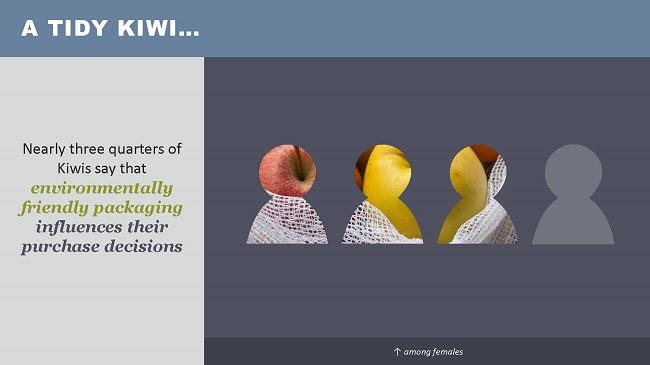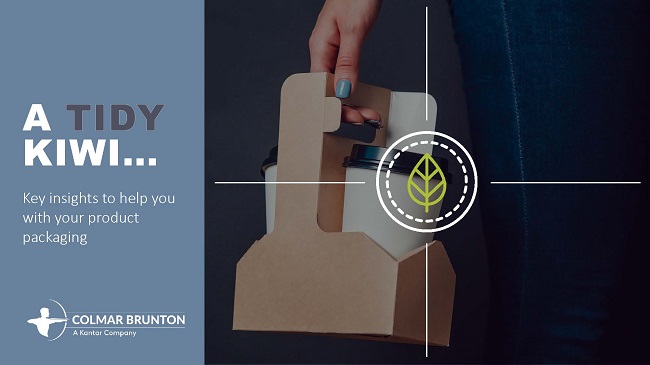Guest blog: Tidy Kiwis are becoming more considerate
To deny the sharp increase in consumer awareness and consideration for our environment is hard to do, especially when research by Colmar Brunton shows that nearly three-quarters of New Zealanders say that environmentally friendly packaging influences their purchase decisions.
To deny the sharp increase in consumer awareness and consideration for our environment is hard to do, especially when research by Colmar Brunton shows that nearly three-quarters of New Zealanders say that environmentally friendly packaging influences their purchase decisions.

In the last few years we have seen an explosion of initiatives aimed at improving the future of our planet – mostly aimed at the reduction of plastic in favour of more environmentally friendly materials. This shift towards a circular economy is heavily driven by packaging and production within the food industry.
We were curious about this so carried out research of consumer views on pack types, expectations, and associated costs.
Interestingly, while the top two attributes of packaging are, perhaps predictably, keeping the contents safe or hygienic, and communicating the contents clearly (at 59% and 53% respectively), close behind is that the packaging is recyclable (46%) and uses as little packaging as possible (43%).
This tells us that New Zealanders place almost as much importance on the sustainability of the packaging as the functionality. And Kiwis are prepared to pay for it too.
More than half of those surveyed said if the packaging was reusable they would be prepared to pay more. Almost half said they would pay more for packaging if it was made from sustainable resources or if it is biodegradable. Interestingly, recyclable is an important feature for consumers, but it is now something that is expected, possibly because it is made easier with recycling collection now a common service provided in most New Zealand towns. On the other hand, compostable is considered a less important attribute as more effort is required to compost, but it is an area of growth.
When we asked consumers what they are already doing to be more environmentally friendly, our research showed the biggest areas of growth are: taking a refillable container for drinks (such as water bottle or keep cups), shopping at bulk food stores and composting.
Fruit and vegetables are considered the most important food group to be presented in environmentally friendly packaging, with 79% of New Zealanders stating it’s important to them.
This could be a side effect to the good work that supermarkets such as Countdown have done recently. While they led the way in banning single use plastic bags from use, this move has highlighted the amount of packaging being used in other areas, in particular the fruit and vegetable section. Some of the bugbears highlighted by those we surveyed included cucumbers individually wrapped in plastic, vegetables on plastic trays or soft wrapped.
It’s a fine line for businesses to balance, as already noted, the number one concern for consumers is ensuring their products are safe and hygienic, but consumers are becoming more conscious about the consequence of this. It now sits with businesses to come up with innovative solutions that satisfies both desires of their consumers.
Read the full results of our research on packaging.

For more information please contact:
Alida Shanks
Marketing and Communications Director
Colmar Brunton
Phone: +64 21 782 502
Email [email protected]
About Colmar Brunton
Colmar Brunton was started in 1981 by two Kiwis with a passion for taking consumer research ‘from the backroom into the boardroom’. It is now New Zealand’s best-known market and social research company, with offices in Auckland and Wellington. Colmar Brunton is part of Kantar, WPP’s insights network covering more than 51 countries around the world.
Contact: Jessica Del Rosario, Account Director, Colmar Brunton
Phone:
Email:
